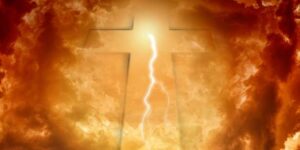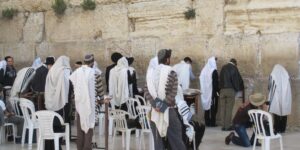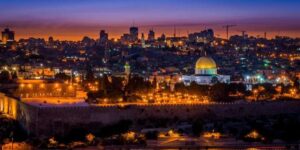Rage Over Bad Governance Fuels Nigerian Islamists
Few in Nigeria’s second city of Kano would admit to supporting the Islamist insurgents waging a bloody northern rebellion against the central government in Abuja.
But when Boko Haram talks of sweeping away the corrupt old order and creating an Islamic state to rule Nigeria fairly, the idea finds resonance with millions of desperate, struggling Nigerians in the north who feel the state has failed them.
“If the government treated people justly, there would none of these problems,” said Khalid Adamu, 45, piling apples into pyramids of red and green at his stall by a traffic-choked Kano street.
Glancing over his shoulder, he hastily added he did not support the Islamists’ campaign of violence, which rights groups say has killed more than 3,000 people in the past three years.
Boko Haram militants have carried out multiple bombings and shootings since the secretive sect launched an uprising in 2009, including a coordinated strike on Kano last year that left 186 people dead—still its deadliest attack to date in a campaign that threatens the stability of Africa’s largest oil producer.
“The government is supposed to look after health, education, water, but we see them doing nothing except getting rich, so why are they surprised there is a rebellion?” Adamu said.
Nigerian President Goodluck Jonathan last week highlighted links between Boko Haram and al-Qaeda’s north African wing, whom French forces chased out of cities in Mali, as evidence Nigeria is one of many countries facing a global jihadist threat.
He gave it as a reason for Nigeria’s large contribution to the West African peacekeeping force that is now gearing up to take over the battle against Saharan Islamists from the French.
Yet many northerners see the roots of the Boko Haram insurgency as local, and doubt whether force can resolve the north’s crisis if no efforts are made to address its grievance: the poverty bred by years of kleptocratic governance.
A ceasefire declared by a Boko Haram commander a week ago raised hopes the government could negotiate with the sect, but violence has continued unabated, and no amount of talks will create opportunities needed to keep young people away from it.
“The devil has found work for our boys’ idle hands,” Ibrahim Shekarau, Kano’s last governor and a 2011 presidential candidate, told Reuters. “The unemployed youth … feel the people in power are not being fair to the man on the street. They want justice.”
‘Hypocrites and Liars’
Many doubt whether an Islamic state would deliver better economic opportunities—as opposed to just an efficient, accountable state—but the idea often appeals to young Muslims in nations where poor governance hinders economic opportunity.
“The target demographic for these people is [ages] 18-21. They are frustrated and alienated by society, by the way everyone in politics is only in it for themselves,” said Mohammed Jinadu, a northern opposition political leader and former legislator.
“Those (Boko Haram members) I’ve spoken to … their complaints are the same as everyone’s: that most of our politicians are hypocrites and liars who have taken the country for a ride.”
Last year Boko Haram, which means “Western education is sinful” in the local language of northern Nigeria, pledged to revive the 19th century rule of Islamic scholar Usman Dan Fodio, who led a revolution to overthrow Hausa kings he saw as corrupt and idolatrous.
Dan Fodio created the Sokoto caliphate over much of what is now northern Nigeria, enforcing a stricter interpretation of Islam.
Alluding to his rule evoked a yearning for the days of West Africa’s great Islamic empires, when northern cities like Kano were prosperous hubs for the fabled trans-Saharan trade routes connecting Africa’s interior with its Mediterranean coast.
A low rise city of Arabic-style flat roofed homes on the cusp of the Sahara, which at this time of year kicks up a haze of fine sand, Kano retains a few traces of that past glory.
Outside a grand, green-domed mosque, young children in a Koranic school separated into boys and girls by an acacia tree practice Arabic calligraphy in torn notebooks.
The city’s poverty is palpable: on most streets blind beggars in rags, some accompanied by children in skull caps, tap on car windows, while hawkers offer wares along miles of gridlock.
At independence from Britain in 1960 Kano prospered, but as southern oil fields began to dominate the economy and a spate of military dictatorships entrenched corruption, the north went into decline. Textile mills starved of electricity went bust.
Education in northern states is dire, a legacy of British colonialism, which allowed the north to protect its Islamic culture from missionaries at the expense of modern schooling.
Half of the teachers in the remote state of Sokoto are illiterate, the Basic Education Commission said last year.
“I have not met a single young man professing to be a member of Boko Haram who has a decent education,” said Jinadu.
‘Extremism’
Boko Haram is in many ways a less conventional adversary than the al-Qaeda-linked militants who overran Mali last year.
Unlike them it controls almost no territory, and has little in the way of desert bases, fuel depots or military vehicles. But its hit-and-run guerrilla attacks—striking then melting back into the population—have repeatedly proved deadly.
Its spiritual leader Abubakar Shekau appears in web videos, but his enemies have never managed to find him in person.
The secretive sect modelled on the Afghan Taliban first became active in 2003 in the northeastern city of Maiduguri, but has since spread across the north and even to the capital Abuja, in the center of the country.
Some politicians in the northeast were initially accused of using sect adherents as guns for hire to settle scores.
“Some politicians have definitely in the past used Boko Haram to harass, to kill, to maim for political ends,” said Isa Kachakor, a retired colonel and former senator from the north who helped found the ruling People’s Democratic Party.
Yet they are not widely thought to still enjoy such backing.
“So a lot them have become armed robbers,” Kachakor said.
In 2009, sect founder Mohammed Yusuf died in police custody, unleashing a torrent of rage that transformed it from a clerical movement opposed to Western culture into a full armed rebellion.
In the yard outside Kano’s police headquarters, now guarded by snipers behind sandbags, lies the wreckage of a tin-roof pharmacy destroyed by a suicide bomber on January 20 last year, when Boko Haram killed 186 people in attacks across the city.
Posters of the policemen killed there dot the adjacent wall.
Sitting in an office decorated by trophies, his bulletproof vest and helmet perched on a coat hanger, Kano state Police Commissioner Ibrahim Idris said security was now much better.
“We learnt our lessons,” he told Reuters. “Our efforts have paid off with a drastic reduction in gun and bomb attacks by these criminals. Gradually … we are winning this war.”
But deadly attacks—including one last month on the convoy of the city’s highest Islamic authority, the Emir of Kano, and on a group of Christians playing a game of draughts—continue.
‘Making Things Worse’
Northern state governments bristle at the suggestion that failures of governance are the main drivers of the insurgency.
“The driver … is international terrorism, which is growing fast all over the world,” Kano’s acting governor Abdullahi Ganduje told Reuters at his grand government complex of sandy hued buildings flanked by fountains, palms and tamarind trees.
“Some Boko Haram trained in Mali, some in Afghanistan.”
He has little sympathy for the argument that Yusuf’s killing made things worse. “If he was still alive … the allegiance to Boko Haram could have been much greater,” he said.
Nevertheless, rights groups say continued extrajudicial killings by the military and police in pursuit of Boko Haram fuel support for the sect.
“They are making things worse,” said former president Muhammadu Buhari, one of the most powerful northern politicians and the main challenger to Jonathan in the last presidential polls.
“When a bomb goes off, you cannot just cordon off the whole area and kill everyone. There should be a lot more restraint.”
Yet northern elites interviewed in Kano were also sceptical about efforts to establish peace talks with the sect’s leaders.
Tanko Yakasai, who was a special adviser to former President Shehu Shagari in the early 1980s, thinks Boko Haram have split into at least three factions: first, the original followers of Yusuf, who are more reclusive and less interested in armed conflict—they are most likely to be amenable to negotiation.
Then there’s Shekau’s militant faction, and finally, a patchwork of even more hardline groups mixing foreign jihadists and Nigerians who are much more closely tied to AQIM, and who operate in neighbouring Chad and Niger, as well as Mali.
An example is Ansaru, an Islamist group blamed for four kidnappings of Europeans in Nigeria, three of whom it killed.
It would be very hard to hold talks with all factions, he said, not to mention the many associated criminal networks.
Whether by talks or successful military action, though, many conflict-weary residents just want the violence to end.
“We don’t support any side, we don’t know who is to blame or who is doing what,” said Haruna Abdullai, 45, dissecting a cow’s carcass at his market stall. “We just want peace to come back.”
Additional reporting by Chukwuemeka Madu; Editing by Giles Elgood.
© 2013 Thomson Reuters. All rights reserved.






































